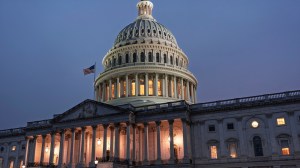Tamil Nadu Governor gives assent to Bill on 7.5% medical reservation
The Bill was unanimously passed in the Assembly on September 15.
 It, however, noted that if the government quota seats are less than 50% of total sanctioned seats, the remaining candidates would avail benefits of the fee equivalent to the government medical college fees, based purely on merit.(Representational image)
It, however, noted that if the government quota seats are less than 50% of total sanctioned seats, the remaining candidates would avail benefits of the fee equivalent to the government medical college fees, based purely on merit.(Representational image)A day after the state government issued an executive order assuring 7.5% horizontal reservation for government school students in medical admissions in this academic year, Tamil Nadu Governor Banwarilal Purohit too granted his assent to the Bill—which had been pending for approval for over a month.
The government chose to take the executive route on Thursday as there was a delay from the Raj Bhavan despite pressure from Opposition parties as well as a meeting of some state Cabinet leaders with Purohit.
The Bill was unanimously passed in the Assembly on September 15.
The new law will provide a 7.5% horizontal quota for students who have studied in state government schools and qualified in NEET for admissions to undergraduate medical courses. The 7.5 % quota will be ensured for students who have studied from Classes 6 to 12 in government schools. The horizontal reservation shall be provided in each category of vertical reservation followed in Tamil Nadu within 69% reservation from the academic year 2020-21.
“This is to inform the people of Tamil Nadu that the Governor has given his assent to the Bill titled Tamil Nadu Admission to Undergraduate Courses in Medicine, Dentistry, Indian Medicine and Homeopathy on preferential basis to the students of Government Schools Bill, 2020,” said the statement.
The statement further elaborated that Governor Purohit had sought the legal opinion of the Solicitor General of India Tushar Mehta, through a letter dated September 26 and his opinion was received on Thursday. “As soon as the opinion was received, the Governor has given assent to the Bill,” the statement said.
Mehta’s response to Purohit’s query was: “Article 15 [5] of the Constitution specifically provides that the state is empowered to make a special provision by law for the advancement of any socially or educationally backward classes of citizens insofar as such special provisions relate to admission to educational institutions including private educational institutions whether aided or unaided by the State.”







